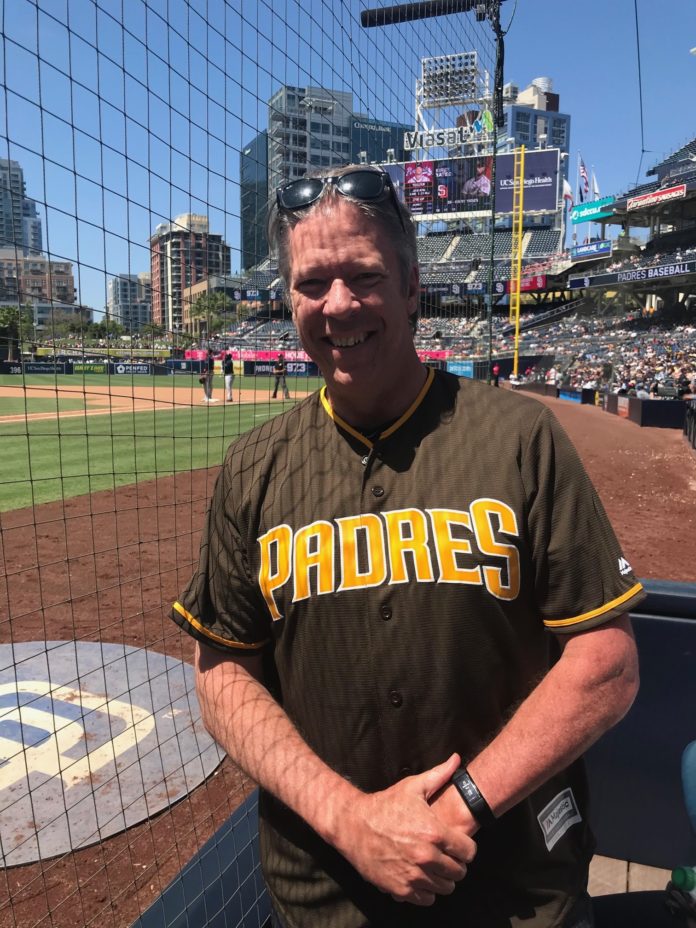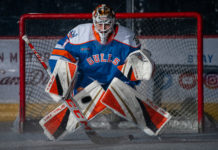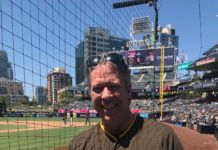When the Washington Nationals arrived in 2005, I released my three children from the psychological confinement of Padres Nation.
It may have been the most humane gesture of their youth.
My reasoning was simple. Baseball is intimate. It is about coming home and being home. No sport is more central to the consciousness of place: where is the ball, where is the runner, where is the fielder…. where will geometry and physics render their judgment? Where, indeed, will barometric pressure, humidity and wind speed settle the subtle differences they leave unresolved? Where will space, time and the glorious arc of the batted ball intermingle within the lush green diamond and, ultimately, where will our home team find itself when the last out is recorded? Where is home? Can we get there…and can we get there more frequently than our rival? Home. A destiny. A place. A bottomless reservoir of nostalgia, reverie, music, pain, regret and joy. Baseball. As infinite as the sky, as confined as the pitcher’s mound.
We attended the Nationals very first home opener. I pulled the kids out of school. It was our own national holiday. My children have been Nationals fans ever since. My children have the spirit of Californians. But they were born and raised in Washington, D.C., not the surrounding suburbs of Virginia or Maryland. When my children travel and mention they are from Washington, D.C., there is often a moment of hesitation. Wait. You were born there? You live in that political cesspool? You grew up, what, near the Capitol and those monuments? It’s not just a tourist destination with tiresome, argumentative pols?
For Washingtonians, D.C. is a place as homey and beloved as any other. That the country recoils from it or suspects there is something perpetually venal, corrupt, indolent or just annoying about it does not discourage those born and raised here. It comes with the territory.
When baseball came here, home got even better. Early spring games were played in the loosening clutches of winter. Late spring games had a heavenly warmth and brilliance. Deep summer games carried a wet cloak of heat and humidity. Fall games heralded earlier sunsets – and sometimes the playoffs.
Until 2019, last year, when the World Series came.
The World Series, I can now say, is sublime. Electricity crackles with each pitch. Every fan becomes a bellow of emotions – taking in and expelling air in disappointment and elation as each play unfolds. It is a collective experience, a stadium-wide psychic recording where anticipation takes on the audible hum of giant stereo speakers; where agony has one circular groan and exhilaration’s volcano rends the air.
I learned this at the World Series – even though the home team never won a game and never even lead for so much as a half-inning. When the World Series left and the Nationals returned to Houston trailing three games two, I was still in a daze of childlike wonder. Such is the power of the pinnacle.
You know what else I learned at the World Series?
Pitching. You need killer STARTING PITCHING.
Nothing matters more. Nothing. Clutch hitting is only clutch if the game is close. The game is close because starting pitchers keep it that way. You can’t “Hang a Star” unless the ball is in the field of play. Starting pitchers keep it there – or nestled deep in the leathery bosom of the catcher’s mitt after a strikeout.
Fact: The Nationals were 10-0 in playoff games started by Max Scherzer or Stephen Strasburg. Strasburg playoff stats: Record 5-0; Innings Pitched 36.1; Strikeouts per 9 Innings (K/9) 11.6; Walks Plus Hits per Inning (WHIP) 0.94; Earned Run Average (ERA) 1.98. Scherzer playoff stats: Record 3-0; Innings Pitched 30.0; Strikeouts per 9 Innings (K/9) 11.1; Walks Plus Hits per Inning (WHIP) 1.20; Earned Run Average (ERA) 2.40.
Fact: The most important comeback victories for the Nationals during their playoff and World Series run occurred when the games were still tantalizingly close. The Nats trailed the Milwaukee Brewers 3-1 in the eighth inning of the Wild Card game; they trailed the Los Angeles Dodgers 3-1 in the eighth inning of Game 5 of the National League Division Series; and the Nats trailed the Astros (107 wins and 60 at Minute Maid Park) 2-0 after six innings in Game 7 of the World Series. Games that are close and low scoring provide hope. Everyone on the bench knows a big hit is out there — which isn’t the case if the score is 9-6 and big hits have come and gone and the score is still lopsided.
Stellar starting pitching takes the pressure off the bullpen. Relievers don’t start fretting and getting itchy feet in the fourth inning. Needless warmups are less frequent. Roles are defined; specialization situations evolve before a right-hander or left-hander’s eyes. Managers seek the best situations for success. Dominant starting pitchers create them for relievers.
Bulldog starters can also create a halo effect – improving the inning-eating potential of rotation arms not as blessed with talent and grit. Scherzer and Strasburg made Nats starters Anibal Sanchez and Patrick Corbin better and more resilient through the regular season and playoffs.
More importantly, brilliant starting pitching can make a lost season come up found (inspirational hat tip: B. B. King). On May 24, the Nationals were 19-31 and ten games behind the Bryce Harper-led Philadelphia Phillies and General Manager Mike Rizzo was being grilled about his likeable but seemingly inept skipper Dave Martinez. Two days before that, Washington’s Svengali of baseball writing, Thomas Boswell, posed the lurking question: “…if I were asked whether the Nats should fire Martinez, I would, unhappily and with a sincere desire to be proved wrong, say, ‘Probably.’”
The Nats didn’t fire Martinez. The team went 74-38 for the remainder of the season and I am now writing a column about their insanely improbable World Series run. The team found its dugout groove, adopted “Baby Shark” and banked on the most bankable of all baseball assets – starting pitching.
Hey, Major! This column is about the Padres, right?
This column HAS been about the Padres. To describe the World Series and the Nats’ dominant starting pitching is to describe exactly what the Padres lack. Now that I have been to the World Series, I know what we are missing. Having seen the unbridled joy in the eyes of my daughter (who joined me at Games 4 and 5), I know what San Diego can enjoy. I have heard the roar. I have felt the taut and tingling sensation of watching a grounder become an inning-ending double play. I know what it means to go five hours without food and beer – it means you’re at the World Series! I want this so badly for San Diego. I want my hometown to know what I now know. I can taste it like salt in the surf.
We are not close. Jurickson Profar doesn’t get us closer. Neither does Tommy Pham. Decent additions, yes, but far from decisive. What has the club done to address its potential-rich/performance-thin starting rotation? Kyle Barraclough. Chih-Wei Hu. Jimmy Yacabonis. Pierce Johnson. Unless and until something else happens, these ditherings are not meaningful enough to criticize.
The Padres’ rotation needs horses. So far, this hot stove season has produced nothing but steamy horse dung. Don’t tell me Chris Paddack, Garrett Richards and Zach Davies will ride to the rescue. They can’t and won’t. Paddack is the best of the lot but he was 9-7 last year (3.33 ERA and 0.98). In his mediocre career, Richards has won six more games than he’s lost (3.60 ERA and 1.26 WHIP). Davies has won eleven more games than he’s lost (3.91 ERA and 1.30 WHIP). Taken together they put the “lite” in “Elite.”
Great pitching solves everything – EVERYTHING. It doesn’t remove the randomness of baseball. It doesn’t erase bad-hop grounders. It doesn’t solve batting slumps. It doesn’t compensate for bad umpires, nasty weather or lineup busting injuries. But it makes all of those problems/realities manageable. Starting pitching can save a foundering season. Starting pitching can give you the edge in every playoff game. Starting pitching can win a World Series – even when you lose every home game.
That’s what I learned at the World Series.
Major Garrett was born and raised in Clairemont, is Chief White House Correspondent for CBS News, host of “The Takeout” podcast and author of the book “Mr. Trump’s Wild Ride: The Thrills, Chills, Screams and Occasional Blackouts of His Extraordinary First Year in Office.”




